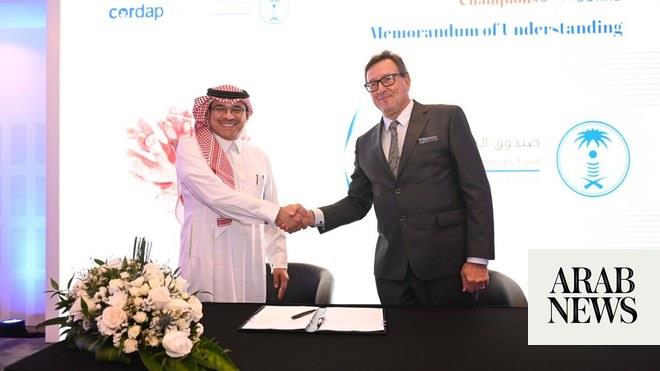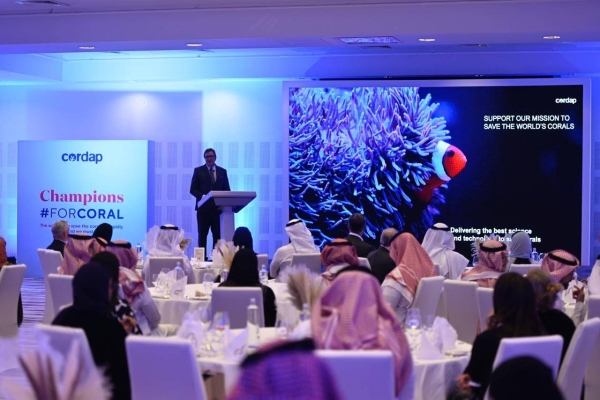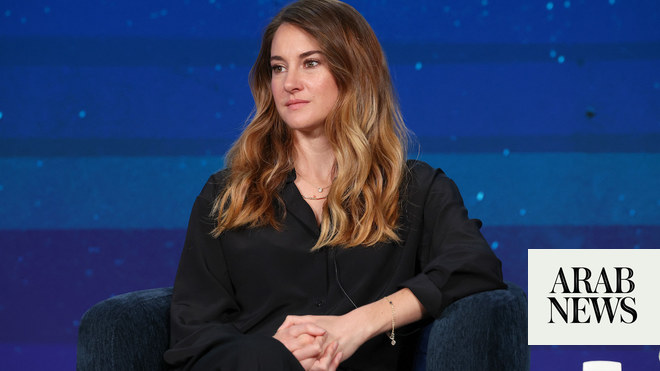
RIYADH: The G20 Coral Research and Development Accelerator Platform, CORDAP, was hosted in Riyadh on Monday to celebrate Saudi Arabia’s prominent role in global coral conservation.
During the event, officials launched the CORDAP Foundation, which had been established by a royal order.
According to a report, 1 billion people rely on coral reefs for food, income, medicine and coastal protection, but more than two-thirds of coral reef coverage globally has already been lost. To address this urgent issue, G20 CORDAP was set up to accelerate research and innovation.
Princess Reema bint Bandar, the Saudi ambassador to the US, took part in a panel discussion titled “The Emergence of Saudi Leadership in Environmental Conservation: Protecting Coral Reefs.”
She said: “I think nations are beginning to realize that the next crisis is going to be the crisis of water and resources. So, if we don’t take that time right now to align, to share the resources, but share the burden to fix what we have done, I think we forget that we didn’t inherit what we have from our ancestors, we’re borrowing from our future generations.”
Fahad bin Abdullah Toonsi, secretary-general of the Saudi G20 Secretariat and adviser to the Royal Court, shared insights on the journey of the Saudi government’s proposal and its acceptance by G20 leaders during the Saudi G20 presidency in 2020, ultimately resulting in the establishment of CORDAP.
Saudi Deputy Minister of Environment, Water and Agriculture Osama Faqeeha said: “The Royal Court’s approval of the CORDAP Foundation marks a major milestone toward implementing this distinguished global initiative.
“The nonprofit organization will facilitate the receipt of financial contributions to CORDAP from G20 and non-G20 countries, the private sector and other contributors according to CORDAP’s charter endorsed by G20 environmental ministers,” he added.
Carlos M. Duarte, executive director of CORDAP and professor at KAUST said: “The future of our oceans depends on us taking action now.”
He added: “70-90 percent of the remaining coral reefs could disappear in the next 10-15 years, a projection that is exemplified by the catastrophic coral losses ongoing in the Caribbean affected by an unprecedented marine heat wave. An ocean without healthy corals is unthinkable.
“Accelerating the next generation of science and technology to help conserve and restore corals, while no efforts are spared to mitigate the pressures on them, must be a priority.”
Duarte told Arab News that G20 nations were among those at risk of losing coral reefs, and that no single nation had the capacity to solve the problem alone.
“60 percent of the world’s coral reefs are under the care of the G20 countries. Therefore, they made the decision to establish a chord under the direction of this Saudi presidency. I was therefore appointed during the Leaders’ Summit in 2020. We are now one of the three pillars of the worldwide conservation effort for coral reefs after two years.”
“It is a huge recognition of the leading role of Saudi Arabia as a leader in a global environment, not just in our own territory.”
Tony Chan, president of KAUST, highlighted the university’s support for CORDAP and Saudi Arabia’s leadership for coral conservation and research.
Many Saudi entities signed MoUs to support the foundation’s efforts in saving reefs, recognizing Saudi Arabia’s leading role in the fight.
CORDAP, headquartered at KAUST in Thuwal, Saudi Arabia, is the first international operating foundation incorporated by the Kingdom. Its establishment paves the way for future foundations to contribute to global goals and support the Saudi leadership in addressing global challenges.
The successful G20 presidency of Saudi Arabia identified coral reefs as key components of the ocean ecosystem at risk, and launched a collaborative Coral Research and Development Accelerator Platform, established by G20 nations in 2021, to drive a global effort to deliver the science and technology required to save tropical and cold-water corals.











